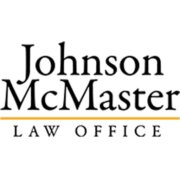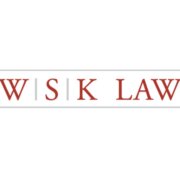Best Water Law Lawyers in Cambridge
Share your needs with us, get contacted by law firms.
Free. Takes 2 min.
List of the best lawyers in Cambridge, Canada
About Water Law in Cambridge, Canada
Water law in Cambridge, Canada covers the rules, regulations, and policies governing the use, management, and protection of water resources. This area of law deals with the rights and restrictions concerning groundwater, surface water, rivers, lakes, and wetlands. Water law in Cambridge incorporates federal, provincial, and municipal policies that aim to ensure responsible usage, equitable access, sustainable management, and environmental protection of water resources. Because Cambridge is located in Ontario, provincial regulations under the Ontario Water Resources Act and related statutes are particularly significant.
Why You May Need a Lawyer
A lawyer with expertise in water law can provide crucial assistance when you face issues involving water usage, disputes, or regulations. Common reasons you might require legal help include:
- Disputes over water rights or access with neighbors or nearby landowners
- Compliance issues with water use regulations, permits, or licensing
- Concerns about pollution, contamination, or environmental harm from nearby development or industrial activities
- Navigating the rules for constructing wells or withdrawing water
- Understanding the responsibilities for maintenance and liability related to watercourses on your property
- Seeking permissions for altering or using shorelines, wetlands, or protected water bodies
- Representing your interests in planning, zoning, or conservation authority hearings regarding water issues
- Addressing flooding, drainage, or stormwater concerns affecting your property
Local Laws Overview
Water law in Cambridge, Ontario is shaped by overlapping federal acts (such as the Fisheries Act), provincial legislation (including the Ontario Water Resources Act and the Clean Water Act), as well as local bylaws and regulations administered by the City of Cambridge and relevant conservation authorities. Here are some key aspects:
- Permits and Approvals: Most significant withdrawals or alterations of water (such as drilling a well, constructing docks, or diverting a watercourse) require permits from provincial authorities or local conservation bodies. Unauthorized activities can result in penalties.
- Environmental Protection: Laws restrict contaminating or harming local water bodies. Prohibitions on discharging certain substances and the need for environmental assessments on proposed developments help protect water quality.
- Water Rights: In Ontario, water is considered a public resource. Landowners have limited rights to use water crossing their land but must ensure reasonable use and not harm others downstream or upstream.
- Flood Management and Drainage: Local bylaws set standards for drainage, stormwater management, and development near flood zones to prevent property and environmental harm.
- Source Water Protection: Under the Clean Water Act, source water protection plans guide decisions about protecting municipal drinking water supplies, affecting land uses in and near vulnerable areas.
Frequently Asked Questions
What is considered a watercourse in Cambridge, Canada?
A watercourse includes rivers, streams, creeks, brooks, and channels with regular or seasonal water flow. Definitions may also extend to ditches or artificially created channels if they convey water.
Do I need a permit to dig a well on my property?
Yes, you typically need a permit from the Ontario Ministry of the Environment, Conservation and Parks or a licensed well contractor. There are requirements around construction, location, and reporting to protect groundwater.
Can I divert or dam a stream that flows through my land?
Diverting or constructing a dam on a stream generally requires permits and cannot interfere with the rights of others or cause environmental harm. Contact the local conservation authority before making any changes.
Am I responsible for maintaining a watercourse on my property?
Landowners are generally responsible for maintaining watercourses on their property to ensure unimpeded flow and prevent flooding or erosion that could affect others.
What should I do if my property has been flooded due to someone else’s actions?
If a neighbor or developer’s activities caused flooding, you may have grounds for civil action or be able to resolve the issue through municipal enforcement or mediation. Legal advice is recommended to understand your options.
How are water usage limits determined for businesses or farms in Cambridge?
Limits are regulated through permits and take into consideration local water availability, potential impacts, and conservation efforts. Large volume users are subject to annual reporting and oversight.
Who regulates water quality in Cambridge?
Water quality is regulated by federal, provincial, and municipal authorities, often in partnership with local conservation authorities. Drinking water for Cambridge’s residents is strictly monitored under provincial law.
Is stormwater runoff regulated in Cambridge?
Yes, stormwater management is required for most developments, and bylaws prohibit polluting storm sewers or allowing untreated runoff into water bodies.
Can I remove native vegetation near a river or wetland on my property?
Removing native vegetation or altering shorelines often requires conservation authority approval. Such vegetation helps reduce erosion, filter pollutants, and maintain ecosystem health.
What are the penalties for violating water laws in Cambridge?
Penalties can range from fines to court orders requiring remediation. The severity depends on the nature of the violation and the harm caused to people or the environment.
Additional Resources
If you need more information or support regarding water law in Cambridge, the following organizations and agencies can be helpful:
- Ontario Ministry of the Environment, Conservation and Parks: Regulates water use, quality, and permits in Ontario.
- Grand River Conservation Authority: Manages local watersheds, issues permits for watercourse alterations, and provides educational resources.
- City of Cambridge Environmental Services: Offers information about local water bylaws, stormwater management, and municipal services.
- Region of Waterloo Public Health: Oversees drinking water safety and private water well protection.
- Ontario Clean Water Agency: Provides technical guidance and regulatory compliance information.
- Waterloo Law Association: Connects residents to local lawyers specializing in water and environmental law.
Next Steps
If you believe you have a legal issue involving water law, begin by gathering all relevant documents, correspondence, and details about your situation. It is advisable to consult with a licensed lawyer experienced in water law in Ontario. Start by contacting local legal associations or asking for referrals from the organizations listed above. Many lawyers offer initial consultations to discuss your case and advise on the best approach. In urgent situations, such as ongoing pollution or imminent harm, contact the appropriate regulatory authority immediately to report the issue. Legal support can help protect your rights, navigate complex regulations, and resolve disputes or compliance concerns effectively.
Lawzana helps you find the best lawyers and law firms in Cambridge through a curated and pre-screened list of qualified legal professionals. Our platform offers rankings and detailed profiles of attorneys and law firms, allowing you to compare based on practice areas, including Water Law, experience, and client feedback.
Each profile includes a description of the firm's areas of practice, client reviews, team members and partners, year of establishment, spoken languages, office locations, contact information, social media presence, and any published articles or resources. Most firms on our platform speak English and are experienced in both local and international legal matters.
Get a quote from top-rated law firms in Cambridge, Canada — quickly, securely, and without unnecessary hassle.
Disclaimer:
The information provided on this page is for general informational purposes only and does not constitute legal advice. While we strive to ensure the accuracy and relevance of the content, legal information may change over time, and interpretations of the law can vary. You should always consult with a qualified legal professional for advice specific to your situation.
We disclaim all liability for actions taken or not taken based on the content of this page. If you believe any information is incorrect or outdated, please contact us, and we will review and update it where appropriate.










